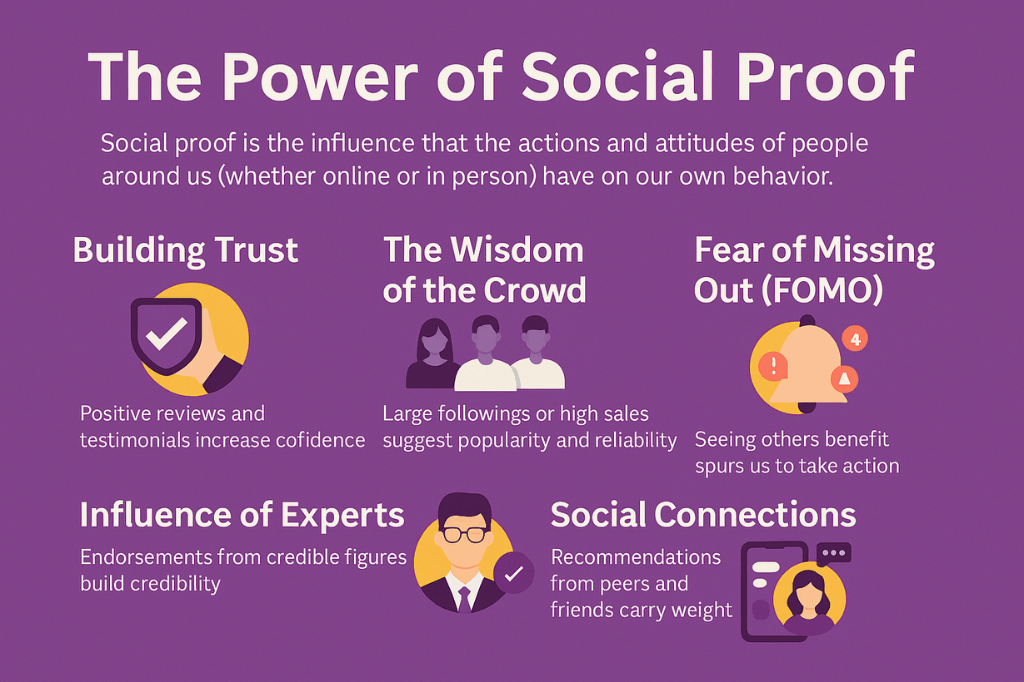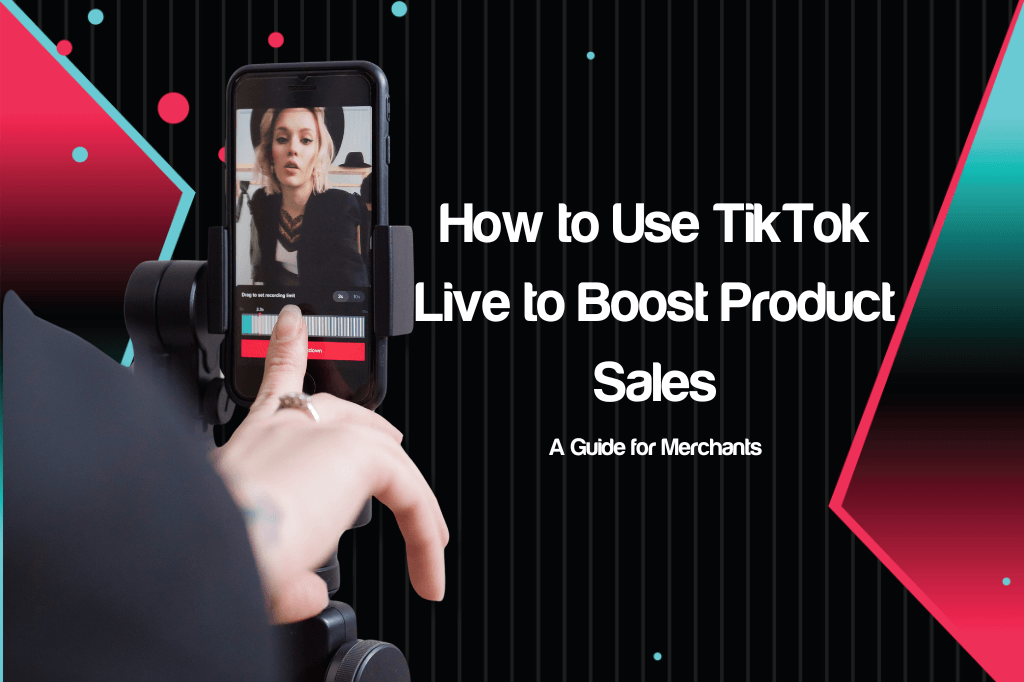In today’s competitive digital landscape, building trust and credibility is paramount for businesses aiming to convert prospects into loyal customers. One of the most effective strategies to achieve this is by harnessing the power of social proof.
What Exactly is Social Proof?
At its core, social proof is the psychological phenomenon where people tend to adopt the actions and behaviors of others in uncertain situations. It’s the inherent human tendency to look to the crowd for guidance, assuming that if others are doing something, it must be the correct or desirable course of action. In a business context, social proof acts as evidence that your products, services, or brand have been positively experienced by others, significantly influencing potential customers’ purchasing decisions.
Why Does Social Proof Work So Effectively? Unveiling the Psychology
The effectiveness of social proof stems from fundamental aspects of human psychology:
- Navigating Uncertainty: When faced with unfamiliar choices or situations, individuals naturally seek cues from their environment. Observing the positive experiences of others reduces perceived risk and provides a sense of security.
- The Wisdom of the Crowd: There’s an inherent belief that a large group of people is more likely to be right than an individual. Positive feedback from multiple sources carries more weight and suggests reliability.
- Fear of Missing Out (FOMO): Seeing others benefit from a product or service can trigger a fear of being left out or missing a valuable opportunity, motivating potential customers to take action.
- Building Trust and Credibility: In the absence of direct personal experience, social proof acts as a powerful trust signal. It validates claims made by the business and builds confidence in the offering.
- Mirror Neurons and Empathy: Our brains are wired with mirror neurons that allow us to empathize with and subconsciously mimic the actions of others. Positive testimonials and reviews can evoke positive emotions and create a sense of connection.
Harnessing Social Proof: Powerful Mechanisms for Businesses
Businesses can strategically leverage various forms of social proof to build trust and drive conversions:
1. Authority-Based Social Proof: Leaning on Credibility
This type of social proof relies on the endorsements and opinions of credible figures or organizations within a specific industry.
- Expert Endorsements: Recommendations from recognized experts in your field carry significant weight. Featuring quotes, reviews, or collaborations with these authorities can instantly boost your brand’s credibility. For optimal SEO, ensure expert endorsements are genuine and relevant to your target audience and keywords.
- Testimonials from Industry Leaders: Securing testimonials from well-respected companies or influential figures within your niche can provide powerful validation. Highlight their specific roles and the tangible benefits they experienced.
- Celebrity Endorsements: While potentially expensive, endorsements from relevant celebrities can generate significant buzz and brand awareness. Carefully select celebrities whose values align with your brand to maintain authenticity.
- Influencer Marketing: Collaborating with social media influencers who have a dedicated and engaged audience within your target market can be highly effective. Focus on influencers with genuine interest in your product and ensure transparency in the partnership to maintain trust. For SEO, target niche influencers whose content aligns with relevant keywords and who can drive targeted traffic to your website.
The Challenge of Authority-Based Proof: While powerful, authority-based social proof can be costly. Furthermore, the authenticity of some endorsements, particularly from generalist influencers, can be questioned.
Strategies to Enhance Authority-Based Proof:
- Strategic Influencer Selection: Choose influencers whose niche expertise and audience demographics align perfectly with your brand and target market. Emphasize genuine product usage and detailed experience sharing. Focus on quality over follower count.
- Transparency and Disclosure: Clearly disclose sponsored content to maintain trust with your audience.
- Focus on Relevance: Prioritize experts and influencers with specific expertise directly related to your industry and product. A travel influencer endorsing a travel gadget holds more credibility than one with a general audience.
- Long-Term Partnerships: Building lasting relationships with credible figures can lead to more authentic and impactful endorsements.

2. Authenticity-Based Social Proof: The Power of Real Experiences
This form of social proof relies on the genuine experiences and opinions of everyday users. It’s often perceived as highly credible due to its unbiased nature.
- Customer Reviews and Ratings: Featuring genuine customer reviews and ratings prominently on your website, product pages, and third-party review platforms is crucial. Encourage reviews by making the process easy and consider offering incentives (ethically) for feedback. For SEO, ensure your review system allows for structured data markup, enabling star ratings to appear in search results.
- Testimonials from Satisfied Customers: Showcase compelling testimonials from real customers that highlight specific benefits and address potential pain points. Include names, photos (with consent), and relevant context to enhance authenticity.
- Social Media Mentions and Comments: Encourage customers to share their experiences on social media and actively engage with comments and mentions. Repurpose positive social media content on your website.
- Case Studies and Success Stories: Detailed case studies showcasing how your product or service has helped real customers achieve tangible results provide powerful and in-depth social proof. Optimize case study titles and content with relevant keywords.
- User-Generated Content (UGC): Encourage customers to create and share their own content (photos, videos, reviews) featuring your products. This is highly authentic and can significantly boost engagement. Run contests or campaigns to incentivize UGC.
- Community Forums and Discussions: Active participation and positive feedback within relevant online communities and forums can build trust and position your brand as a valuable resource.
The Challenge of Authenticity-Based Proof: Gathering authentic social proof requires effort and can be time-consuming. Motivating customers to leave reviews and share their experiences can be a hurdle.
Strategies to Enhance Authenticity-Based Proof:
- Incentivize Reviews (Ethically): Offer small rewards like discounts on future purchases or loyalty points for leaving genuine reviews. Avoid incentivizing positive reviews specifically.
- Make it Easy to Leave Feedback: Streamline the review process and provide multiple channels for customers to share their opinions.
- Actively Solicit Feedback: Proactively ask for reviews after a purchase or positive interaction.
- Respond to Reviews (Both Positive and Negative): Engaging with feedback shows you value customer opinions and provides an opportunity to address concerns.
- Showcase Visual Proof: Incorporate photos and videos from real customers using your products.

Social Proof in E-Commerce: A Game-Changer for Online Businesses
Social proof is particularly vital for e-commerce businesses where customers lack the ability to physically interact with products before purchasing.
- Displaying Star Ratings and Review Counts: Prominently showcase average star ratings and the number of reviews on product pages and in search results.
- Featuring Customer Testimonials on Product Pages: Place relevant testimonials near product descriptions and calls to action.
- Highlighting “Bestseller” or “Most Popular” Badges: Indicate products that have been frequently purchased by other customers.
- Showing “X People are Viewing This Item” Notifications: Create a sense of urgency and social validation.
- Integrating Social Media Feeds: Display positive social media mentions and user-generated content directly on your website.
- Showcasing Trust Badges and Security Seals: While not direct social proof, these elements build trust and signal security, indirectly influencing decisions.
Read About The 5 Proven Strategies to Boost Your Online Store’s Success
Conclusion: Building Trust and Driving Growth with Social Proof
Social proof is not just a marketing tactic; it’s a fundamental aspect of human behavior that businesses can strategically leverage to build trust, enhance credibility, and ultimately drive sales and growth. By understanding the psychology behind it and implementing various forms of authentic and authoritative social proof, businesses can effectively influence purchasing decisions and cultivate a loyal customer base in the competitive digital landscape.


